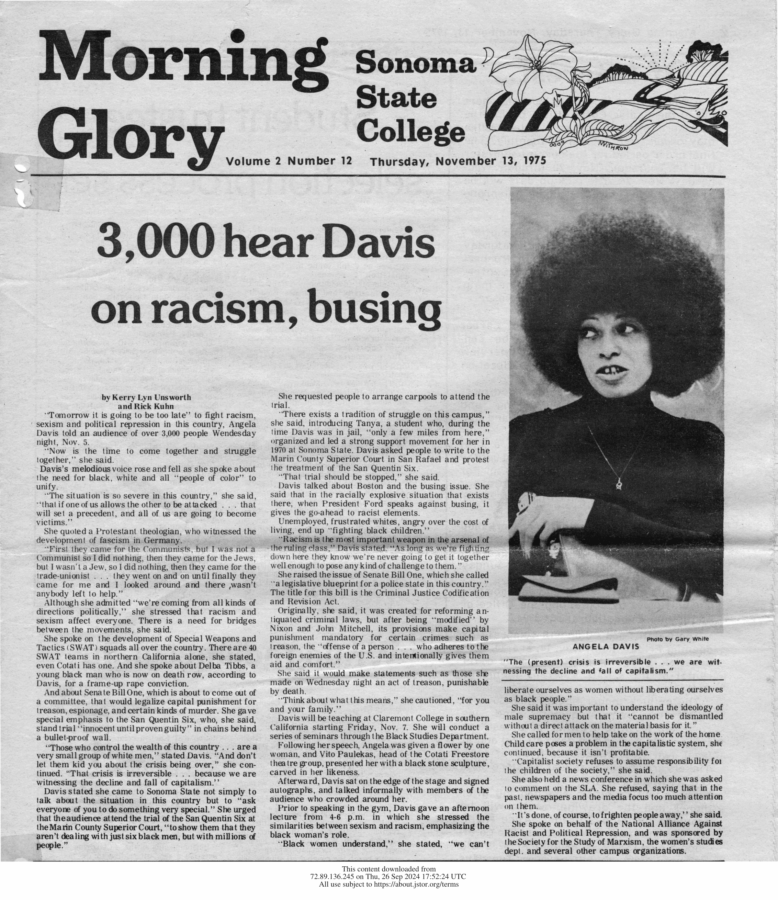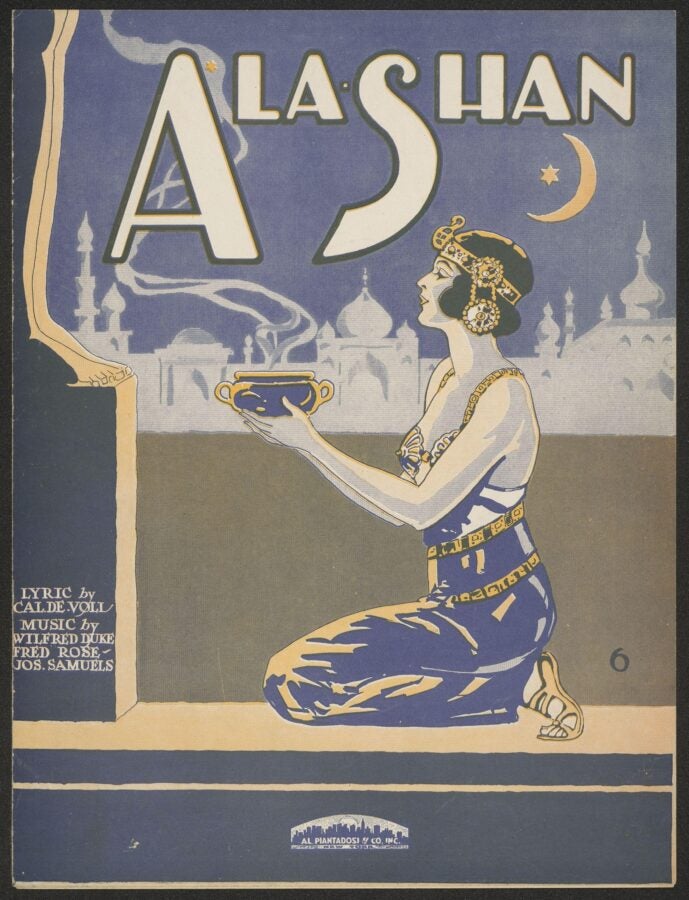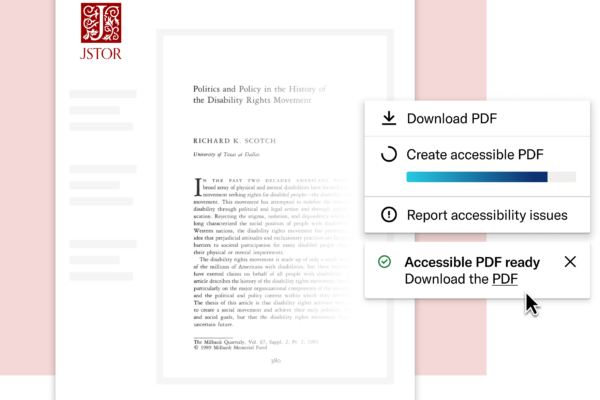This month, we’re highlighting a range of resources on JSTOR, which all bring more depth and diversity to JSTOR’s offerings. From radical newspapers to historical multimedia, these additions continue to support educators, researchers, and students alike.
This month’s highlights include new entries from Reveal Digital, exciting content from shared collections, and valuable video resources now available on JSTOR.
Reveal Digital: showcasing underrepresented histories

The Guardian (1970s)
We’re excited to announce the addition of the New York newspaper, The Guardian, to Reveal Digital’s Independent Voices collection. Offering a radical, independent perspective on both U.S. and international events, this Guardian is distinct from today’s newspapers with the same name. In its time, it provided a platform for critical discourse on U.S. foreign policy and social justice issues, adding significant value to our growing collection of 20th-century radical publications.
Sourced from California State University, Dominguez Hills, this material has been digitized to preserve its legacy and ensure its accessibility to researchers studying alternative political movements.
Upcoming: The National Guardian (1950s-60s)
In addition to The Guardian, Reveal Digital is digitizing The National Guardian, its predecessor. Known for its focus on the American Civil Rights Movement in the 1950s and 1960s, The National Guardian will soon be part of Reveal Digital’s Behind the Scenes of the Civil Rights Movements collection, offering invaluable insights into this crucial period of American history.
View The Guardian in the Independent Voices collection and learn how to support Reveal Digital’s efforts to develop open access primary source collections from underrepresented voices.
Shared collections: expanding academic resources

Rick and Mary Lee Reese Collection on the Yellowstone Institute
Shared collections expanded this month with the Rick and Mary Lee Reese Collection on the Yellowstone Institute, made available by Montana State University. This collection features a wealth of documents, reports, and photographs chronicling the educational and conservation work of the Yellowstone Institute. It offers a detailed look at environmental stewardship efforts from 1980 to 2021, making it an essential resource for researchers and educators studying environmental policy and history.
Sonoma State University Archives Collection

This month, we also added the Sonoma State University Archives Collection to JSTOR. This digital archive includes clippings, video interviews, and photographs that document key moments in the university’s vibrant history. Highlights from the collection include visits from iconic figures such as Angela Davis, Betty Friedan, and Anaïs Nin, offering valuable material for researchers focused on 20th-century social movements and campus activism.
Collection of Middle East-inspired sheet music

Also recent is an intriguing historical sheet music collection, featuring Middle East-inspired works from the 19th and 20th centuries. Curated by Johns Hopkins Sheridan Libraries, this collection sheds light on Western interpretations—and sometimes misrepresentations—of Middle Eastern culture during a period of fascination with the region. It’s a must-explore for musicologists and historians interested in cross-cultural exchange and the evolution of musical traditions.
Video: engaging historical perspectives
Twopence Magic (Zweigroschenzauber) by Hans Richter
Hans Richter’s 1929 avant-garde film Twopence Magic (Zweigroschenzauber) is an inventive video highlight. Shared by Bucknell University, this short film serves as an advertisement for a picture magazine, blending everyday life with surreal imagery in a playful yet visually stunning montage.
From cyclists to swimmers to lovers, Richter’s montage explores early advertising’s potential to engage viewers through the art of cinema, making this film essential for those studying the intersection of advertising and film history.
Dental health PSA (1960s)
Step back into the 1950s with a delightful set of public health announcements on dental hygiene from the American Dental Association, sourced from the Wellcome Collection and now available on JSTOR. These vintage animated PSAs offer a playful yet informative reminder about the importance of dental care, using timeless characters to promote good oral hygiene practices.
With its humorous suggestion that taking care of your teeth will make you feel like “another Peter Pan,” the above short video offers a snapshot of mid-century public health messaging.
A cruel kindness: food and obesity in 1960s England
Also from the Wellcome Collection, Cruel Kindness takes a poignant look at childhood obesity in post-war England. Narrated by a female GP, the film highlights the struggles of three children whose weight issues stem from their parents’ well-meaning but misguided feeding practices—a “cruel kindness,” as the film puts it.
The charming animations about food groups and balanced nutrition provide a glimpse into the evolution of health education, offering an insightful reflection on how cultural attitudes toward food and exercise have changed over time.
Senator Claiborne Pell debate (1972)
Another addition to our audio and video collection is a 1972 senatorial debate featuring Rhode Island’s Senator Claiborne Pell. From the University of Rhode Island, his televised debate showcases Pell’s political platform and highlights his accomplishments, giving viewers a rare look at how television changed the dynamics of political engagement.
For those researching U.S. political history and media, this footage offers a fascinating insight into the early days of televised campaigning.
AIDS awareness video (1987)
From the Wellcome Collection, we’ve recently added a 1987 AIDS awareness video titled AIDS: Your Choice for Life. This sobering clip explains the biological effects of HIV on the body’s immune system and provides an overview of the ways the virus disrupts the body’s defense mechanisms.
As part of the broader effort to raise public awareness during the AIDS epidemic, this video is an important historical resource for those studying the history of public health campaigns.
Hay Fever documentary (1953)
This short documentary from the Wellcome Collection, directed by John Freeman and Alfred William Frankland, details the development of a desensitizing treatment for hay fever sufferers. The film explains how pollen is carefully collected, prepared, and used in treatment sets to alleviate symptoms. One memorable segment shares the story of a young girl who, after receiving treatment, can finally enjoy the countryside without being affected by her allergies.
These additions reflect our commitment to expanding access to high-quality, interdisciplinary resources on JSTOR. From environmental education to political debates, we continue to enrich our collections with materials that offer fresh perspectives on the past and present. Stay tuned for more updates next month!



